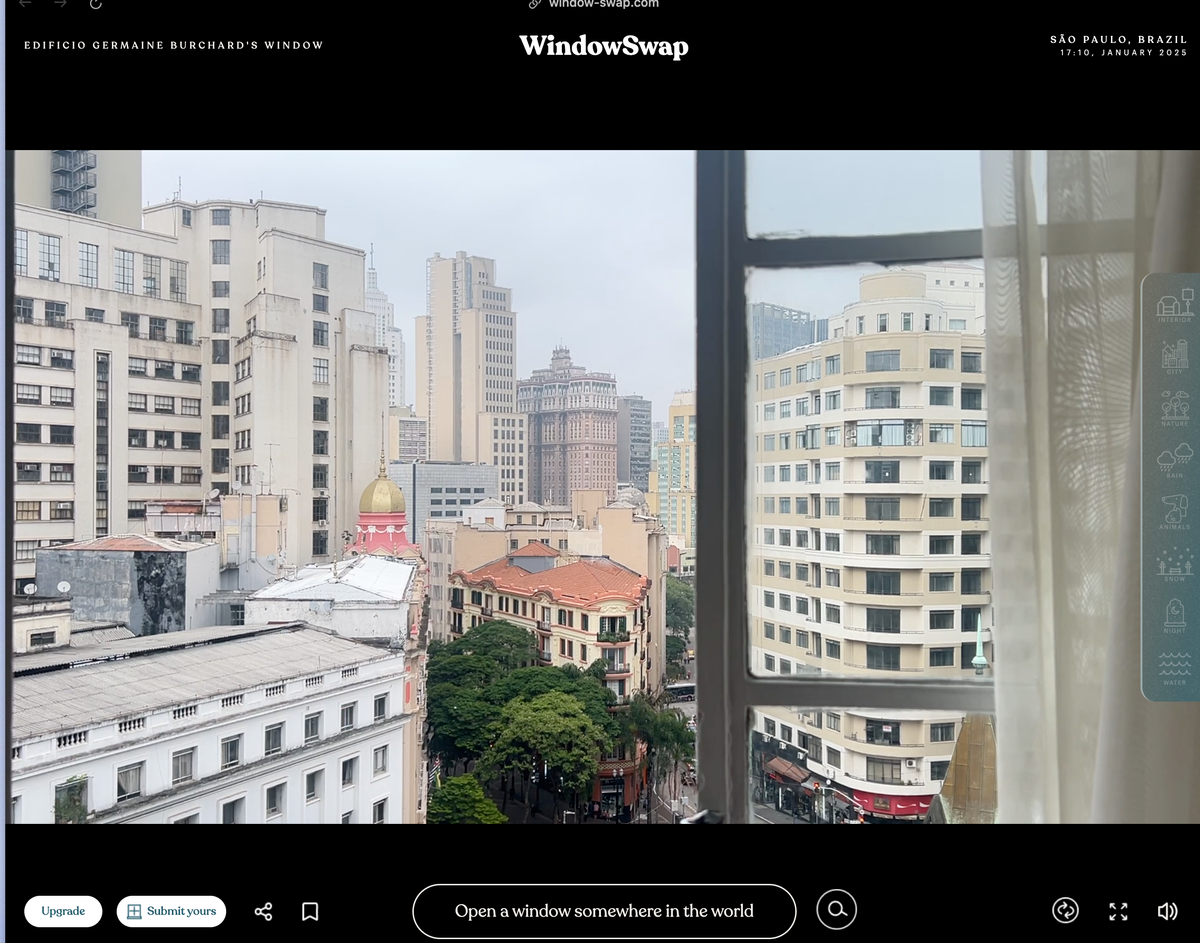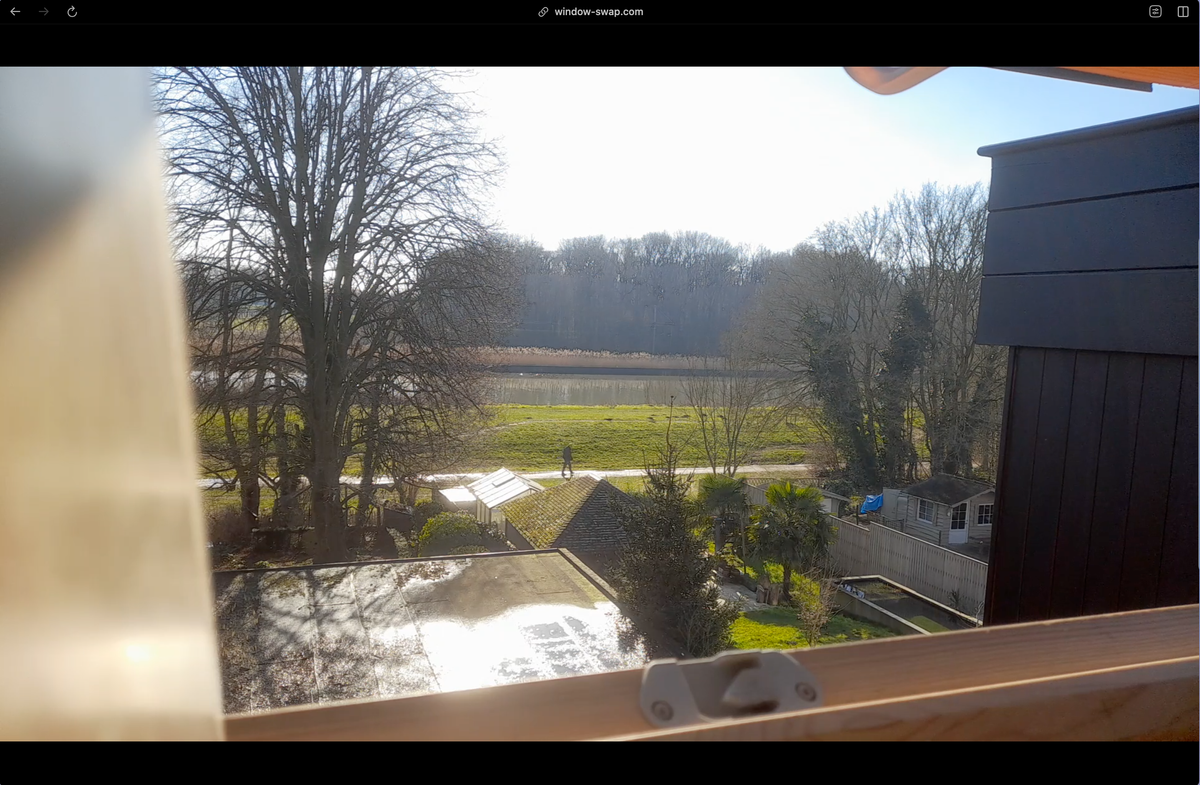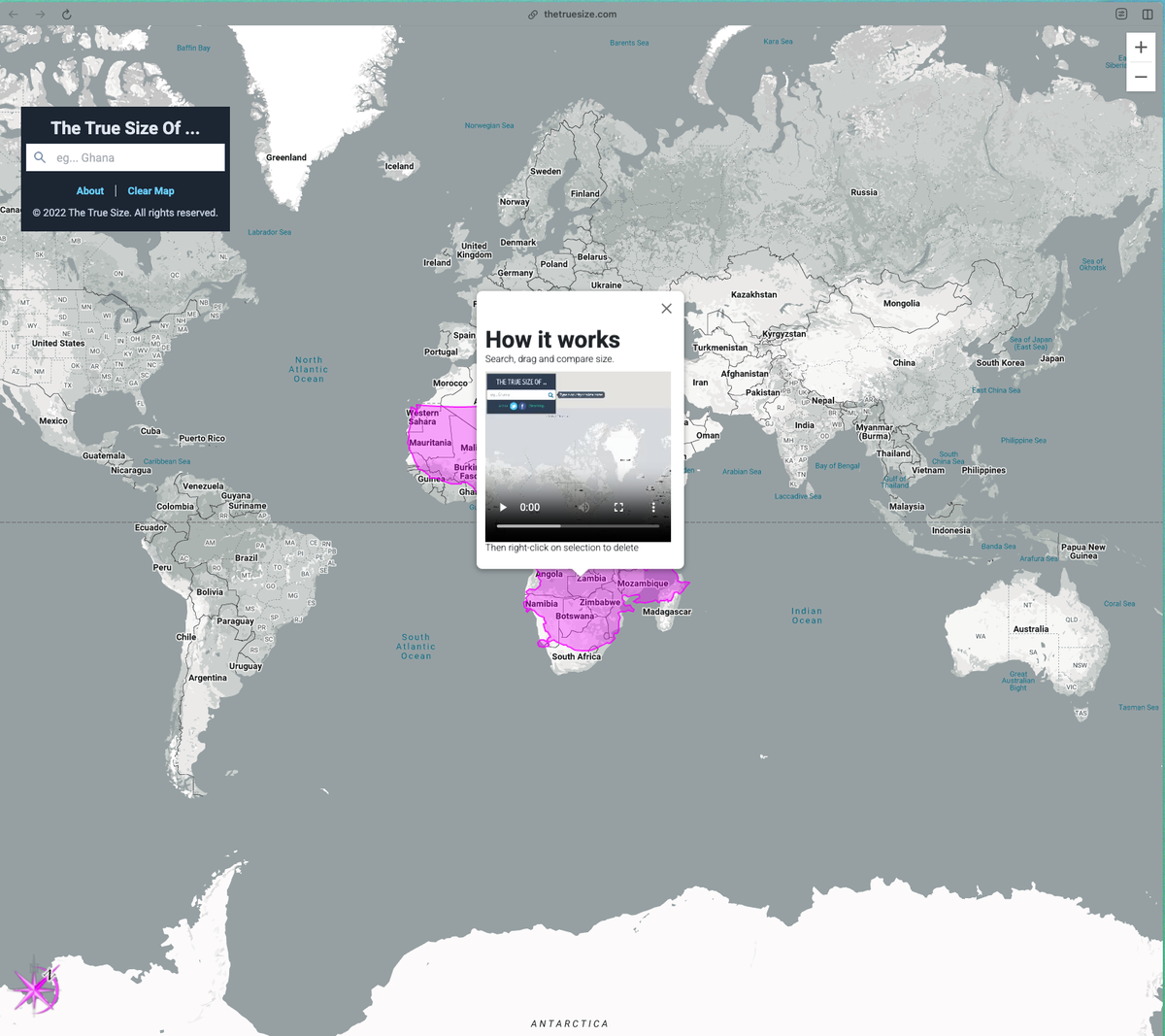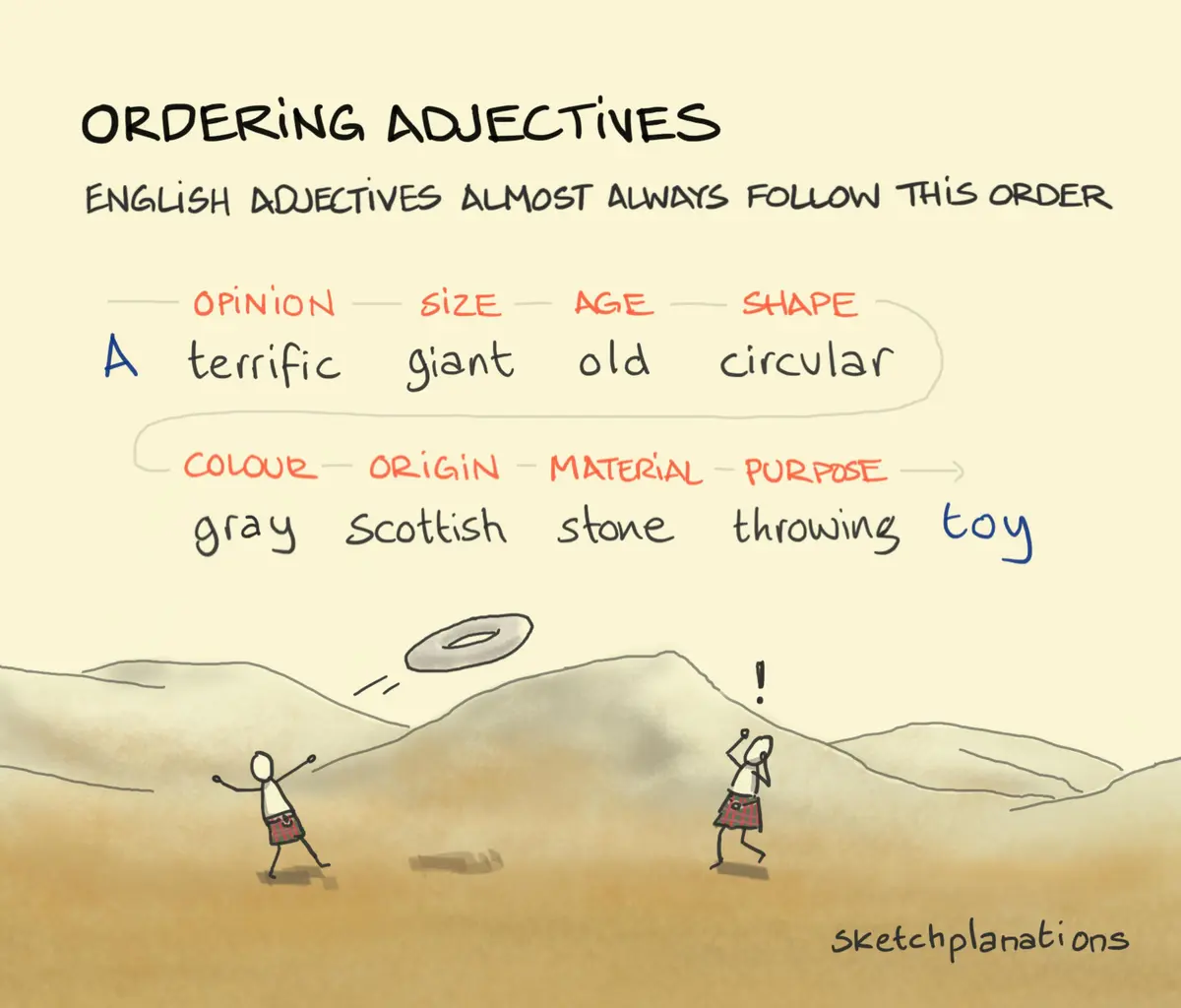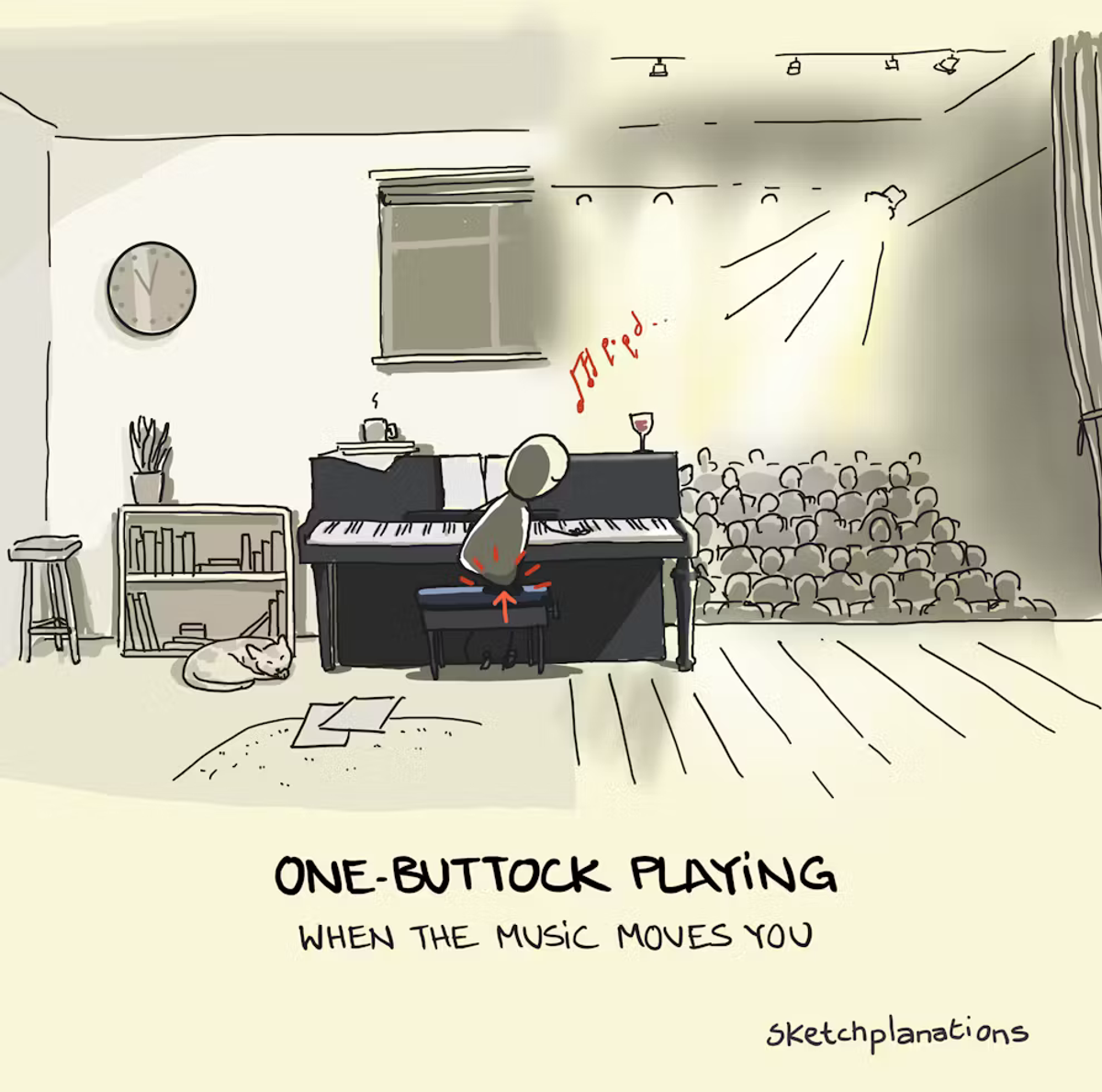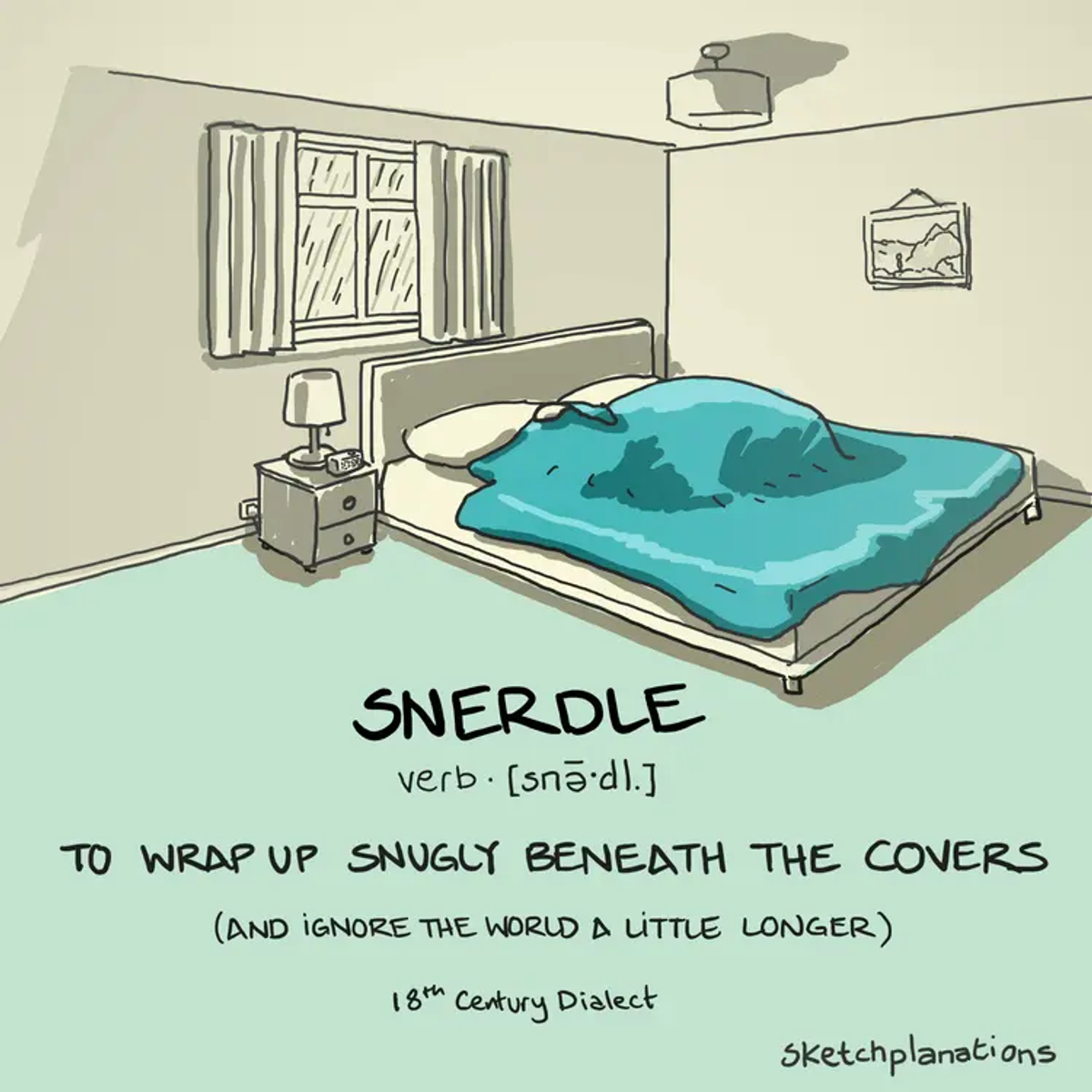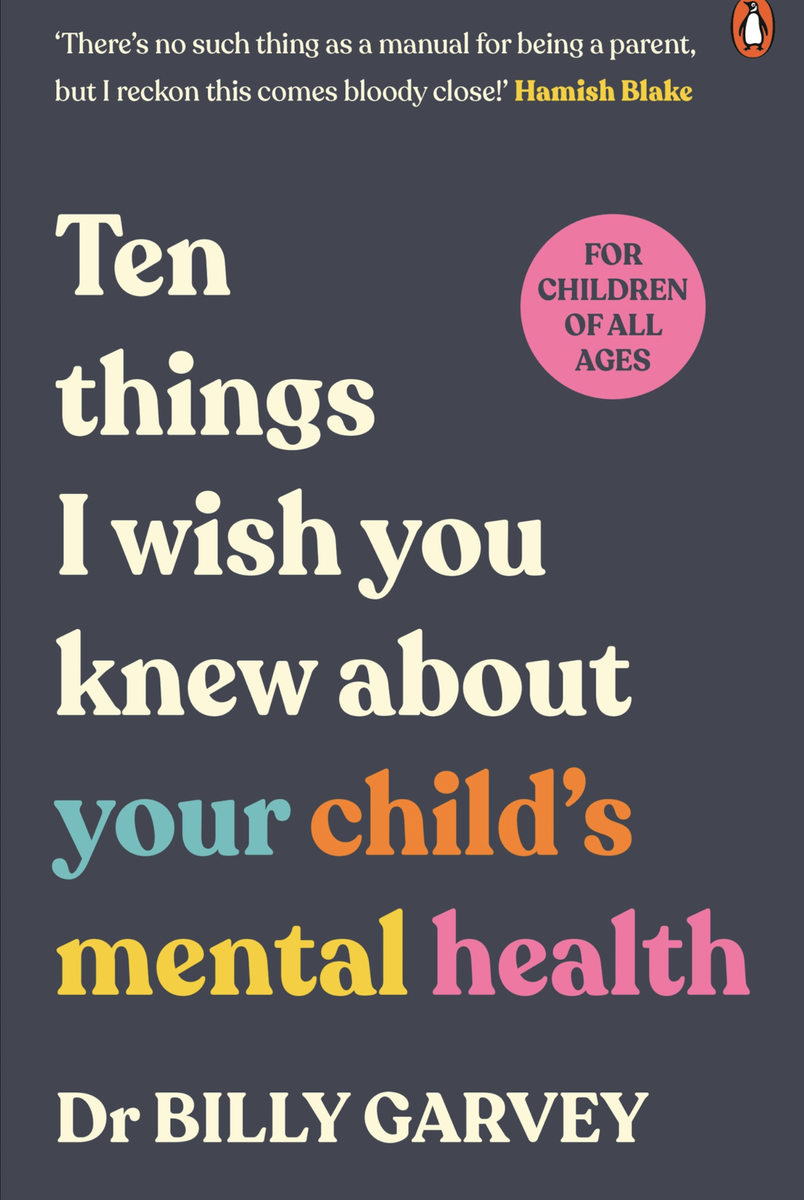Teaching & Learning Page:
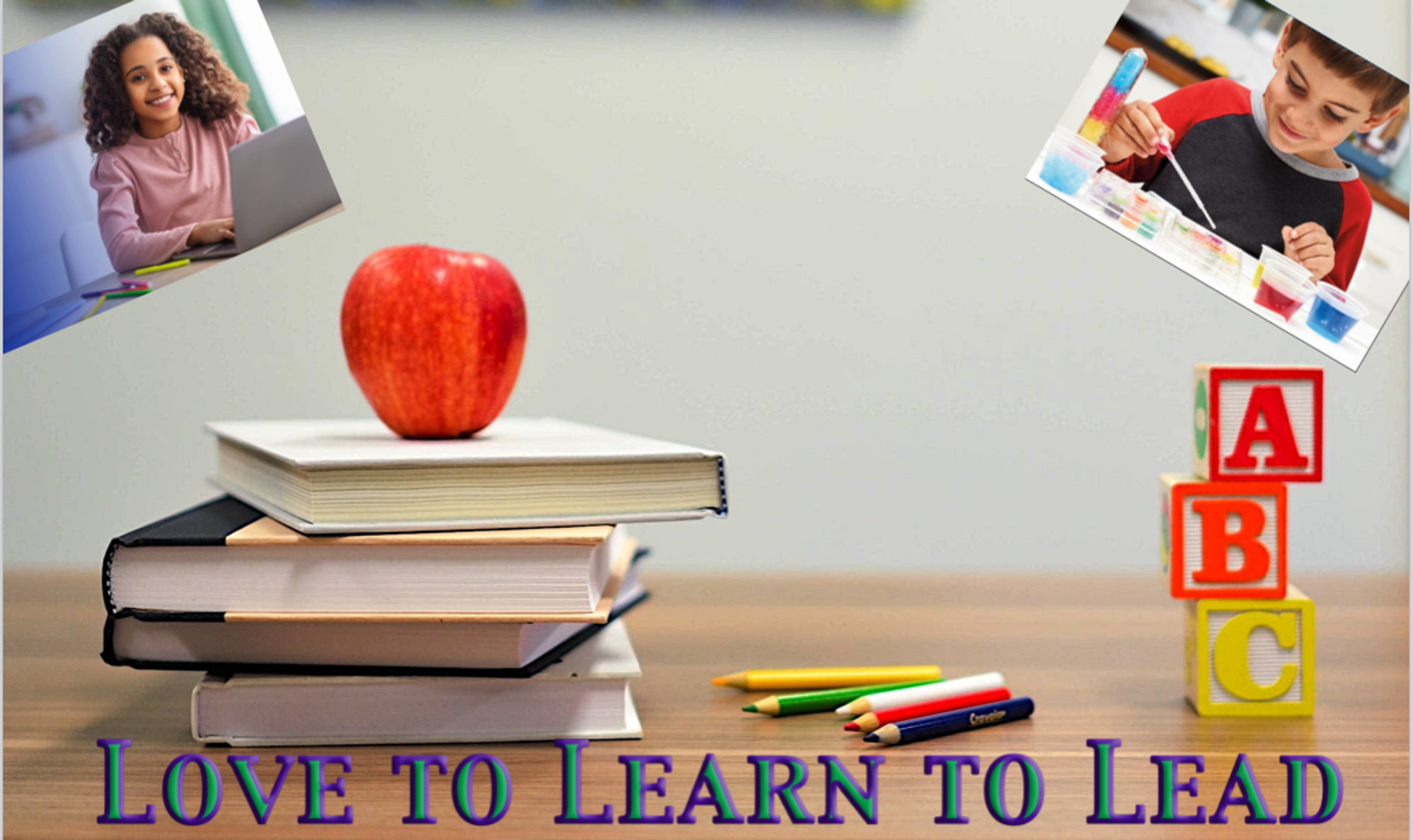
Web Pages:
I LOVE this site. You can look through windows of homes from around the world. I just watched snow falling outside of a house window in a lovely part of Copenhagen, Denmark. It was mesmerising. In the window on the right, the live view captured someone strolling along the road, probably with no idea in the world that they were being watched from New Zealand and goodness knows where else.
Take a virtual vacation - there are so many ways to see the world without leaving home.
This site lets you connect to live TV almost anywhere in the world. Have you ever wondered what they watch on national TV in Azerbaijan? I'll admit I hadn't - until I discovered I could. So I did - briefly - and I learned a small new thing.
Our globes and maps distort the true size of different parts of the world. This will help you see the true size of different countries.
Techie Tips:
Sketches:
How do we order our adjectives when speaking English?
Remarkably, when we describe a noun, we almost always unconsciously arrange adjectives in this order: opinion, size, age, shape, colour, origin, material, and purpose.
It just doesn't sound right if you try mixing them up in a different order. Compare, for example, a super little Italian coffee to an Italian little super coffee.
Or, as Mark Forsyth points out in The Elements of Eloquence: How to turn the perfect English phrase, you can have a great green dragon, but not a green great one.
We all experience the power of music to move us either as players or listeners.
In his entertaining and insightful TED talk about The Transformative Power of Classical Music, Benjamin Zander begins with a memorable sequence of imitating a child learning to play the piano. With each new year of practice, the child's playing becomes more gentle, more accomplished, and more emotional.
When playing as if an eleven-year-old, now leaning into the music, only one buttock in contact with the piano stool, Ben Zander says,
"I don't know how we got into this position.
I didn't say, 'I'm going to move my shoulder over, move my body.' No, the music pushed me over, which is why I call it one-buttock playing."
He goes on to say,
"You know, a gentleman was once watching a presentation I was doing, when I was working with a young pianist. He was the president of a corporation in Ohio. I was working with this young pianist, and said, 'The trouble with you is you're a two-buttock player. You should be a one-buttock player.' I moved his body while he was playing. And suddenly, the music took off. It took flight. The audience gasped when they heard the difference. Then I got a letter from this gentleman. He said, 'I was so moved. I went back and I transformed my entire company into a one-buttock company.'"
For me, one-buttock playing means going with the music, letting it take you, and being fully involved, ignoring everything else. It's like reaching a state of Flow, or, as in Pixar's movie Soul, being in "the Zone." And as a more general metaphor, one-buttock playing is a fun reminder to give your all to an activity and be in the moment. Also, buttock is just a funny word.
There are many ways to get into Flow. You can be in Flow working on a spreadsheet. But no spreadsheet has the same effect that music can or matches how I feel when playing and composing on the piano (have a listen).
How many things are much nicer than wrapping yourself snugly under the covers in bed and ignoring the world for a little longer? That's the meaning of the 18th-century dialect word Snerdle.
Snerdle (verb) is from Yorkshire dialectologist Joseph Wright's English Dialect Dictionary. He gives the definition of snerdle, with examples, as:
SNERDLE, v. [snə̄·dl.] To nestle closely; to wrap up comfortably in bed; to go comfortably off to sleep. “Snerdle the child up; make it comfortable.” “The children are snerdling together nicely.” “I think the baby will soon snerdle off.”
Shared by British lexicographer and etymologist Susie Dent in her book Word Perfect: Etymological Entertainment Every Day, snerdling suits a grey, chilly, rainy winter day—which is what we have here—or, at times, hiding from current events.
Susie also lets us know: "Snuzzle, snoodge, and snerdle: all verbs in the English Dialect Dictionary for snuggling under the covers as though your life depended on it."
Like snerdling? There's also the old Scottish word hurkle-durkle. Hurkle-duckling is revelling in staying in bed long after you should have gotten up. Aaah, bliss.
Article:
What makes a good teacher?
A new report from the University of Auckland’s Our Voices Project asks young people what makes a good teacher.
Good relationships, skilled teaching and effective classroom management are the three characteristics of the best teachers, say 13-year-olds participating in the Growing Up in New Zealand(GUiNZ) study.
Last week, new research was released from the University of Auckland’s Our Voices project, analysing survey responses from the thousand 13-year-olds who participated in the GUiNZ survey. The report, titled ‘Schools & Teachers: Influences that Matter’, asked what it means to be a good teacher, following findings that positive school experiences partly depend on teacher quality.
The question “What makes a good teacher” received a range of responses from rangatahi and reflected how students saw themselves. Many young people valued learning and consequently valued teachers who were capable, skilled and passionate. “Someone who cares about what they teach. Wants the best for students. Knows what they are teaching well,” read one response.
Young people also said they wanted positive classroom environments, recognising teachers as authority figures. They expressed that the best teachers struck a good balance between control and respect. Rangatahi also voiced their sense of fairness. One respondent says a good teacher should be fair and listen well, without favouritism.
Young people also valued teachers who were able to provide pastoral as well as academic care. Students expressed that good teachers were able to form strong student-teacher relationships. Lead investigator, Associate Professor Kane Meissel, said, “Interpersonal relationships, between students and teachers, are central to a positive school experience, and our rangatahi aspire to be good people and want to surround themselves with good people.”
Students who had a negative experience of school often described 'good' teachers in the negative, i.e a good teacher was someone who did not do certain things. “Not yelling because you don’t understand something,” wrote one student.
What makes a good school?
The report also analysed responses from young people about what made a good school. Many young people took a holistic approach, stating that school should not just be about receiving a quality education, but a place that is friendly, safe and fun. Rangatahi reported safety, positive peer relationships and culture, and good students and teachers as being important to a “good” school. They also reported valuing a broad range of extracurricular activities and facilities, as they offered experiences that helped students prepare for life after school.
Survey responses from the GUiNZ study indicated a “good” school was: “a safe, friendly learning space”; “a place where you can learn and have fun at the same time” and had“heaps of opportunities for you to get stuck into”.
Sailing the waka
Based on its findings, the report outlines a model of what it means to be a good teacher, based on the waka hourua, or the double-hulled waka. “Teachers are instrumental to supporting students and their learning,” notes the report. It draws a comparison between the waka hourua as an efficient mode of transport, and teachers as a “vessel that helps to move students from their starting point to the end where they have fulfilled their academic potential and enjoyed the learning and school experience.”
In this model, the two hulls are “being a good person” and “quality teaching”, which teachers have direct control of in their teaching practice. The sails are the classroom climate, which teachers can influence as leaders, but require student cooperation. Additionally, though teachers and students can help adjust the sails, neither teacher nor student can control the ocean they sail in, representing the wider social climate and education policy settings.
Book Recommendation:
Children of all ages are grappling with anxiety, depression, low self-esteem and behavioural issues, and it can take years to see an expert who can help them.
Dr Billy Garvey is a senior specialist at one of the world's biggest and most prestigious paediatric hospitals. With over twenty years' experience working with families, he wants to reassure parents that there is no such thing as a bad child and that much of what he tells families in clinic is based on the same principles he outlines in this book.
Regardless of whether you have a young child or a teen on the brink of adulthood, by understanding the foundations of good mental health, you will be able to help them to thrive at any stage in their development.

